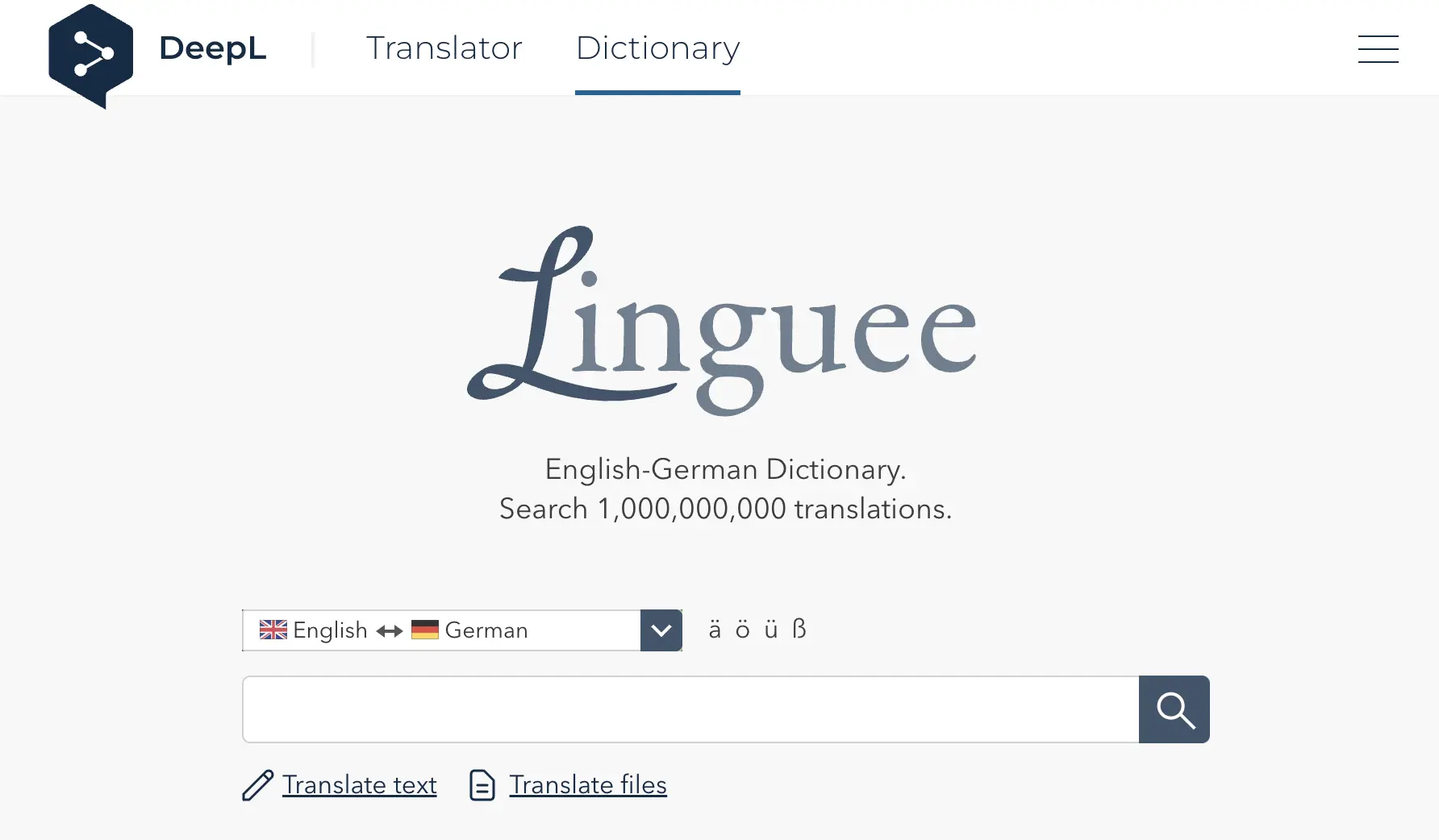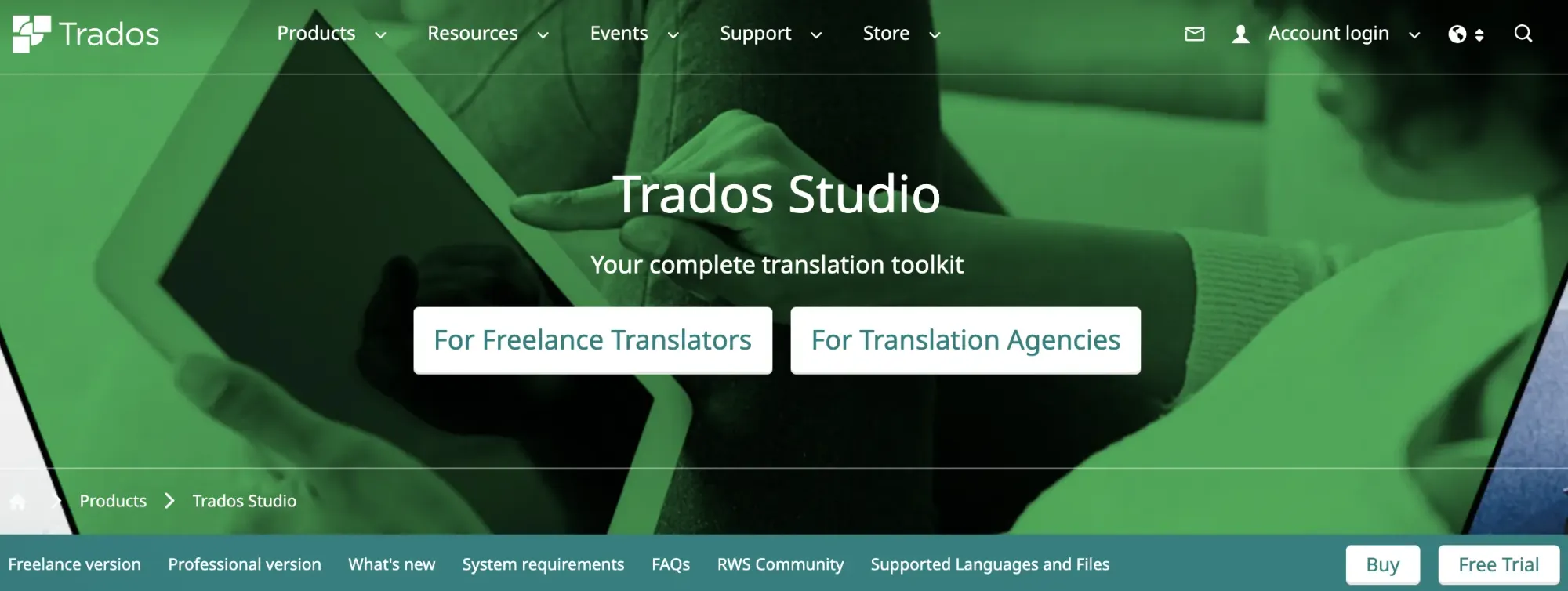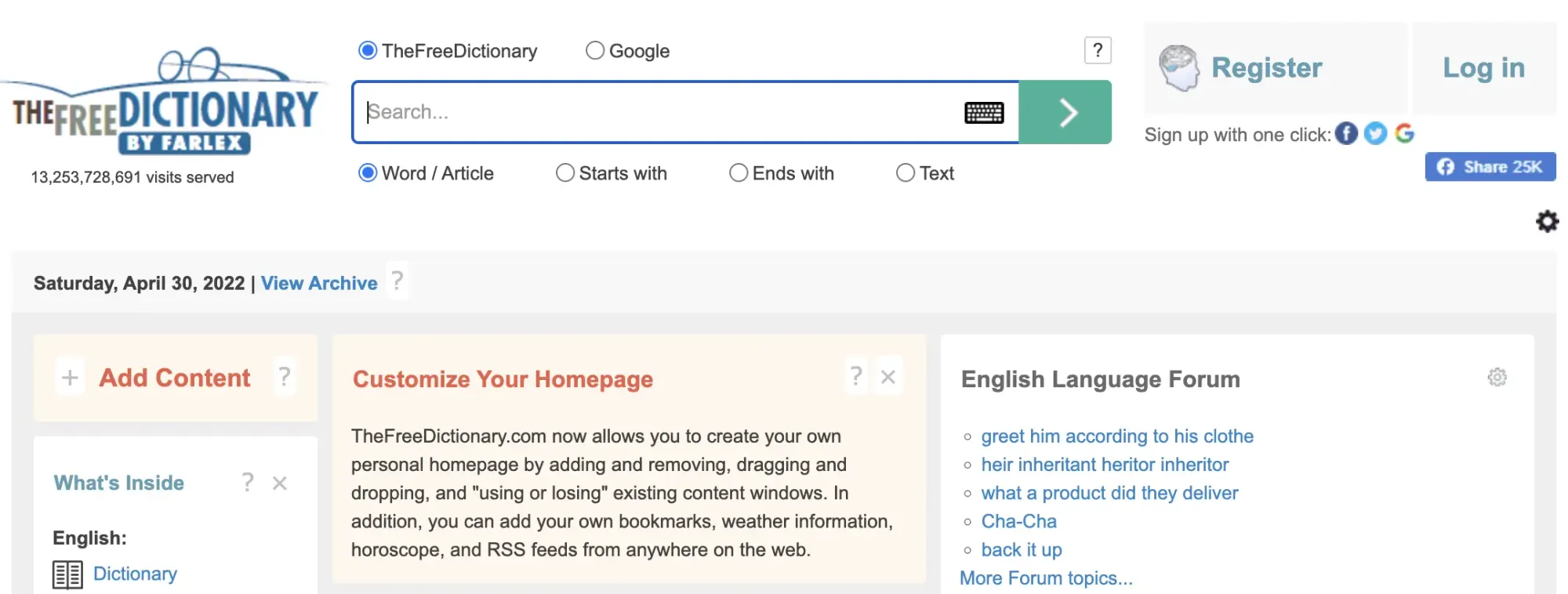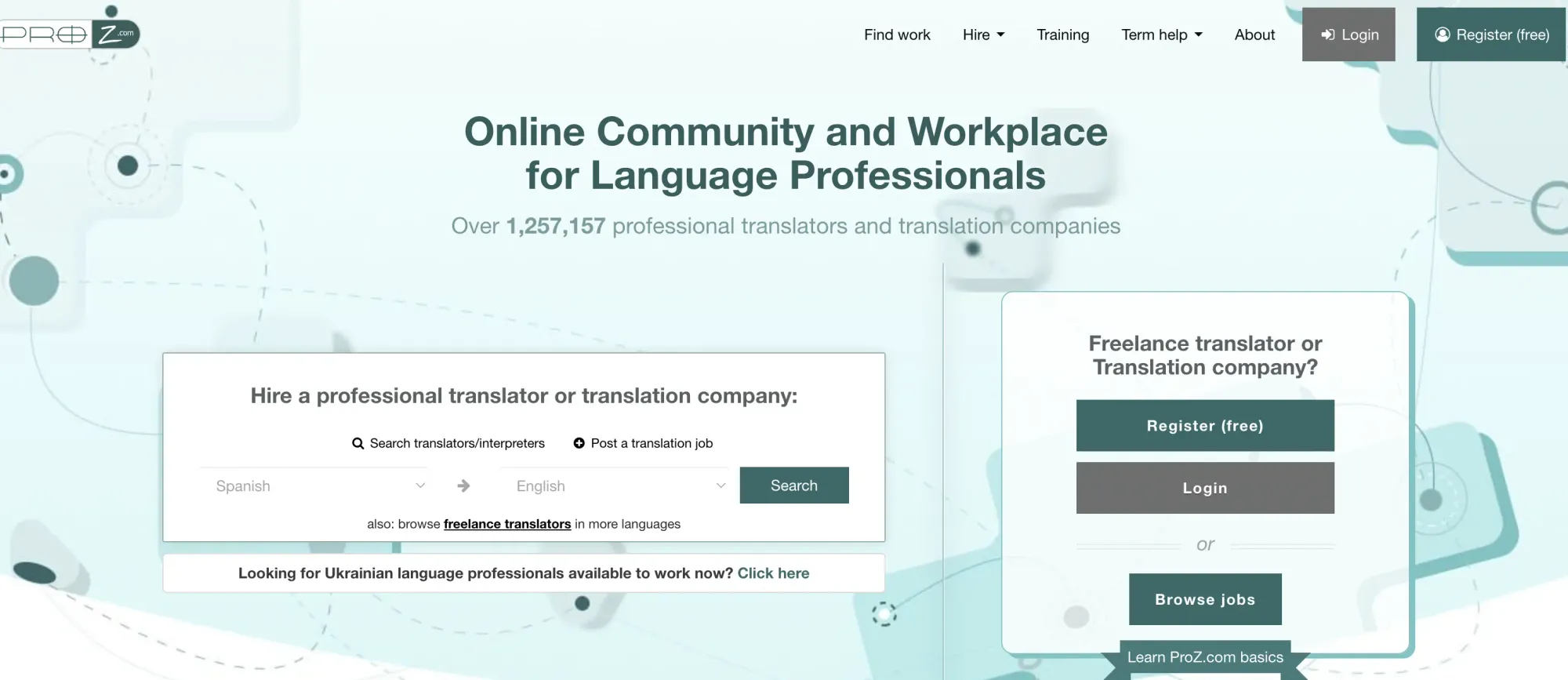Many people who speak a second language will consider becoming a freelance translator as a full-time or part-time self-employed profession.
However, when you learn to become a freelance translator, you'll find that it takes more organization and effort than you might expect to be effective. You'll need to be fluent in at least two languages, and trying to attract clients after a few Duolingo sessions are pointless.

You'll need to stand out from the crowd with software that provides essential automatic translations, and plenty of competition for higher-paying and more specialized work. Once you succeed, you could have a lucrative freelance translator career.
What is the role of a freelance translator?
Translators are people who convert information and words from one language to another. They compile information and technical phrases into glossary and terminology databases and transform concepts from source languages to related concepts in target languages. They are fluent in at least two languages, one of which is usually English, and can speak, read, and write in both. They accurately, swiftly, and clearly replicate spoken messages in the original language's style and tone.
It's difficult to know where to begin, though. Is it possible to become a freelance translator if you have no experience?
This article has mentioned guidelines for starting your career as a freelance translator without experience and what skills you need to be a freelance translator.
1. Should have a firm grasp of your native language
To work as a freelance translator, you must be a good writer with a thorough understanding of grammar and various writing styles and familiarity with the Source Language. Remember that your translated work will be read by native speakers with extensive experience.

So, if you can't match that level of expertise, you may end up causing problems for your clients. We always respect the norm that translators only translate into their native language (also known as the target language).
2. Should have a strong command of your second language
Translating a text (sometimes referred to as the source text) is not the same as replacing work in one language with its equivalent in a language spoken by your target audience.
Machine translation accomplishes this, and the outcomes are dismal. To translate from one language into another, you must be fluent in that language and understand the text you are translating. You will only be able to translate from your second language to your original language if you are only almost fluent in your second language.
Translating a text (sometimes referred to as the source text) is not the same as replacing work in one language with its equivalent in a language spoken by your target audience.
3. Both languages have extensive cultural knowledge
The cultural distinctions across countries must be well-known to a freelance translator. You might not be providing a satisfactory service to your client if all you do is translate words while maintaining the meaning of the content.

What if some of the text is offensive to the culture of the intended audience? Here are some examples of translation mishaps that resulted in a terrible effect for some businesses due to a lack of cultural adaptation.
4. Computer and keyboarding skills mastery
You do not need to be a computer specialist. Still, you should be able to demonstrate your knowledge and ability to navigate through many computer programs. Mastering this will demonstrate your efficiency, increasing your chances of landing a job. You'll also need to learn how to use and master CAT(Computer-assisted translation) tools.

As a bonus, learning picture manipulation and editing applications like Photoshop and desktop publishing would be beneficial, as there are clients who demand such services. HTML knowledge is also advantageous.
5. Ability to work for oneself
When you wish to work as a freelancer, you'll need customer service, sales, and marketing skills. If you don't want to work for an agency, you'll need to learn how to promote your skills. To be successful, you must improve your customer service abilities, negotiation skills, organizational and time management skills, and be tenacious and determined. You can enroll in short courses on marketing, business operations, and customer service.
What is the average salary for a freelance translator?
The amount of money you make as a freelancer will vary depending on your talents and expertise. However, before deciding on a career, it's helpful to have a basic notion of your possible earnings. And when it comes to budgeting for both your business and your personal expenses.

The typical annual salary for a UK freelance translator is between £17,708 and £31,757. (Glassdoor). However, this will vary greatly depending on your location, expertise, certifications, and whether or not you specialize in a particular field. It's almost the same as the starting salary for employed translators, roughly £17,000 for entry-level work. Senior employees' salaries might range from £35 to £40,000.
Is Being a Freelance Translator Right for You?
One of the best career choices you can make is as a freelance translator. Here's why:
Work-life balance is essential
Working as a freelance translator allows you to determine your own work/life balance boundaries. It is entirely up to you whether the working week should be four or five days long. For people with childcare duties, health concerns, or simply don't feel like a 9-5 routine is for them, this can be a very enticing aspect of freelancing.
You can work from wherever
You can work from wherever as a freelancer. At least, that's how it works in theory. You must still follow the norms of other nations in terms of work, taxation, and so on. Still, you have far more flexibility regarding where you work than in a traditional office job.
Even if you don't want to go to another nation, freelancing allows you to work from your neighborhood coffee shop, garden, or bed.
Minimal investment
You don't have to buy expensive suits to fit in as a freelance translator at the office. You don't have to figure out the most cost-effective route to work every day.

You can even save a lot of money on lunches if you eat at home. Simply by not coming to work every day, you can save a lot of money.
There is no need to commute
You won't have to commute if you don't have to go to a workplace every day. Instead of sitting and fuming in traffic or waiting impatiently, you may just get up, put the kettle on, and enjoy a calm morning routine.
No commute also means no daily battles with the elements. Whether it's pouring or snowing, you can relax knowing you won't have to deal with today's elements.
Make the most of your abilities
You have the opportunity to maximize your potential as a freelance translator and gain the benefits. As your employer, you may devote as much time and energy to expanding your skillset and developing your translation abilities. You can also work as many hours as you like to increase your earnings. You will benefit the most, regardless of how you choose to grow yourself, which can be inspiring!
Tools for Freelance Translator
The translation process can be complicated at times. It often covers many topics and necessitates substantial study and contextual knowledge. Fortunately, the digital revolution has developed tools, software, and resources that aid translation efficiency, consistency, and quality. The following is a list of translation tools that translators recommend for translators.
1. Linguee
This famous translation tool combines a dictionary with a search engine, allowing you to look up multilingual sentences, words, and expressions in several languages to check semantics and contextual translations.

Linguee also performs a web search for relevant translated publications and displays how a word is translated across the web. It's frequently used with Google Images to aid translators and language learners.
2. SDL Trados Studio
SDL Trados is a good investment for full-time translators. It is the most recommended computer-assisted translation (CAT) product by Gengo Wordsmiths.

TM, terminology, machine translation, and software localization are all included in this product. Because most large agencies demand translators to use one of the well-known CAT programs, SDL Trados could help you expand your customer base and horizons. If you need more time to decide before buying, try a 30-day free trial version.
3. The Free Dictionary
This comprehensive resource, which is available in many languages, is a dictionary, thesaurus, and encyclopedia. Get free access to medical, financial, and legal dictionaries and an extensive collection of idioms, acronyms, and phrases in various languages, including Spanish, French, Portuguese, and Japanese.

The encyclopedia also includes updated sections, such as a word or article of the day. iOS and Android devices are supported by the free mobile app.
4. Fluency Now
Individual freelancers can use Fluency Now Professional, a premium CAT tool and translation memory software. It is compatible with Mac, Windows, and Linux operating systems and costs $9.95 a month.

Fluency Now Enterprise gives businesses access to additional services, including Fluency Flow, a project management tool. It also comes with built-in proofreading tools and statistics for projects and documents.
5. ProZ
ProZ should be your go-to resource if you favor engagement and crowdsourcing. ProZ is a platform for professional translators who want to collaborate on translation, dictionaries, training, and discounts on translation products.

It is home to the world's largest translation network. Translators can also ask questions and participate in forum discussions.
Essential Tips for Freelance Translators
To stand out in the eyes of their recruiter, freelance translators whose income is wholly based on their internet career must take some substantial steps. Newly minted translators ignore several critical components of their internet presence, causing potential employers to disregard their eligibility.
Some freelance translators are linguistically gifted but lack basic commercial understanding. No matter how talented you are or how many languages you speak, you will never be able to make a respectable living unless you have a steady stream of clients. As a result, one of the most significant freelance translator marketing ideas one can give you is to develop a freelance translator marketing plan.

The primary purpose of developing a marketing strategy for your freelance translator business is to attract as many clients as possible. Your website, blog, and CV must send out trust signals to potential clients and persuade them that you have what it takes to do the work.
You should be able to clearly exhibit your linguistic abilities. Your translator CV should be organized and highlight your areas of expertise. You must respond quickly to your e-mails, or your client may move on to another more driven candidate.
Knowing your limit and bounds is one of the most critical pieces of advice for freelance translators. Freelance translators who have been fortunate enough to gain many clients due to their excellent marketing strategy and ability to respond to their demands may feel overworked and burned out at times.
Learning to say “No!” is one of the most challenging aspects of freelance translation. Some freelance translators are hesitant to turn down job offers because they believe they are squandering an opportunity to earn more money.
Conclusion
You can set yourself up for success in freelance translating if you start with the necessary abilities, experience, and resources. While no freelancing work is simple, many people find it rewarding. There will undoubtedly be challenges and setbacks, but keep going. It may take some time to learn, but in the end, you'll have a full-time job you enjoy with plenty of freedom and flexibility.






